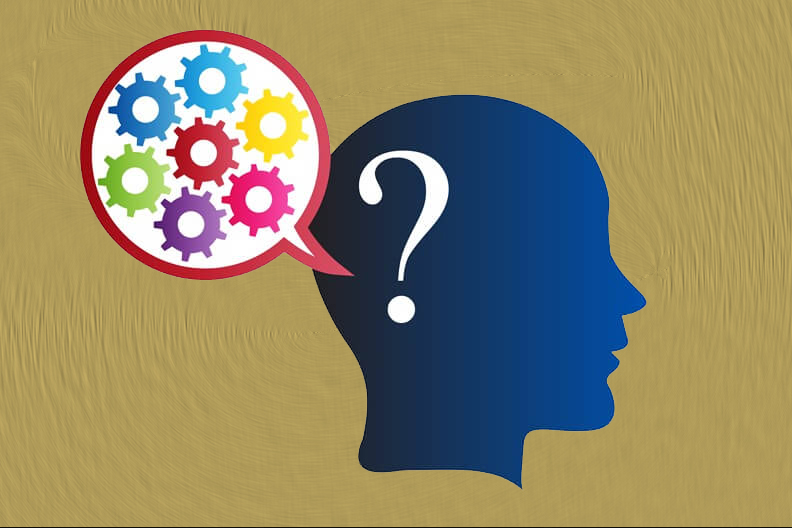As a meeting planner, chances are good that you have used metacognitive skills more times than you might think. After all, many of these skills are key strengths necessary for meeting planners. The further developed your metacognitive skills are, the more likely you are to do your job well.
Metacognitive skills give you the ability to organize and evaluate your thought process when it comes to problem-solving and learning. This skill set also affects how you approach knowledge retention and how self-aware you are about the information you do know and do not know.
Metacognitive skills occur in three different phases:
- Planning: Questioning what information you want or need to learn, what kind of existing knowledge can help you learn it, what the main focus of learning is, and how much time you have to learn it.
- Monitoring: Questioning how well you are retaining the information, whether you should continue at a slow or fast pace based on how difficult the subject is, and whether asking for or receiving guidance would improve the learning process.
- Evaluation: Determining how well you learned the information during the monitoring phase and whether this information can help you in other areas of your life, defining what your weak areas are and what you can do to improve them, and analyzing what you could have done differently to improve your absorption and retention of the information.
With hundreds of metacognitive skills you could develop, which ones are most advantageous for meeting planners to enhance?
BEST METACOGNITIVE SKILLS FOR MEETING PLANNERS
Planning
This skill is obvious, but the most important one for meeting planners, of course. Planning a meeting is a multi-faceted, complex task that can quickly spiral out of control if you do not prioritize and have goals in place. You must deftly juggle the demands and needs of attendees, the details of the venue, travel and meal arrangements, and manage vendor relationships, just to name a few.
Concentrating
It is easy to get distracted during the meeting planning process with all the elements involved. Therefore, it is critical to focus on the task at hand without letting anything steal your attention until it is done (or done for the time being, at least). And you must be able to switch fluidly between tasks at a moment’s notice.
Solving Problems
You are no doubt aware of the long list of issues that can arise when planning a meeting. Sometimes, issues pop up at the last minute –even on the day of the event. Other times, interactions may lead to opportunities where shifting gears is required. The better you are problem-solving, the better your chances are of addressing challenges head-on and coming up with viable solutions.
Setting Goals
Meeting planning can start just a few months or well over a year before the event. Between the beginning of the planning process and the post-event wrap-up, you will have many tasks to accomplish. By setting goals in advance, you will take a proactive approach that will put success well within your reach.
Staying Organized
Amid the last-minute changes and numerous stakeholders involved in meeting planning, you must stay organized. Think of organization as the life raft that keeps you afloat when the water gets choppy and waves threaten to crash over your head. Staying organized will help you navigate the storm expertly and make it to the shore in one piece.
HOW TO FULLY DEVELOP YOUR METACOGNITIVE SKILLS
The most successful meeting planners leverage metacognitive skills to plan meetings that delight their clients. First, however, they must fully develop them.
Shift to a Solution-Focused Mindset
Also known as the growth mindset, focusing on solutions to problems – instead of the problems themselves – will make you a better problem solver. It also makes you more resilient and agile in the midst of adversity. Put your solution-focused mindset into action by using problems as a source of information instead of viewing them as obstacles. Assess problems just long enough to gather the intel you need to start brainstorming creative solutions.
Figure Out How You Learn
Each person has their own learning style:
- Visual – Images, shapes and colors
- Auditory – Verbal instructions and group discussions
- Kinesthetic – Hands-on forms of learning and physical activity
Once you know which approach is best for helping you learn, you can then carry out job-related tasks in ways that empower you to complete them successfully.
Direct Open-Ended Questions at Yourself
Every successful meeting has objectives that it must achieve. You might start your planning process by asking yourself an open-ended question like, “What goals does this meeting need to accomplish?” And do not stop there. Ask yourself open-ended questions throughout the entire planning process. Doing so will help you assess all the elements that are key to producing the desired results.
After the meeting has wrapped up, ask yourself what areas you struggled with the most (and how you could improve on them) and what strengths you could incorporate into the next meeting. This level of self-awareness will aid your efforts to continually elevate your skill set and expertise.
Map Out a Step-by-Step Plan
One of the most effective ways to manage the heavy cognitive load a meeting can place on your brain is to break down the process into a step-by-step plan. Divide tasks into smaller subtasks, or actionable items, that are less intimidating to tackle.
Give yourself a hefty dose of gratification by checking off each item as you complete it. This will boost your confidence in your meeting planning abilities.
Solicit Feedback from Trusted Colleagues
Asking for different perspectives can provide you with valuable insight you might not otherwise learn if the only perspective you see is your own. Ask trusted colleagues and mentors to share what they feel you can work on to become a better meeting planner. And do not stop there. Make sure you apply the feedback they share with you.
Be Realistic About Your Strengths and Weaknesses
Self-awareness is an important part of excelling in any professional role. You are not putting yourself down by acknowledging that you can improve in some areas. Rather, you are setting yourself up to achieve greatness in your career as a meeting planner. By remaining self-aware at all times, you can become a respected leader in your field.
SOFT SKILLS FOR A HARD LAUNCH AS A TOP MEETING PLANNER
Yes, you might need to invest a little extra time and effort into further developing your metacognitive skills. But you will see the investment pay off handsomely with ongoing success and the satisfaction that you get from performing at your highest level.
Do you want to train attendees on developing their metacognitive skills at your next corporate event, meeting or conference? Contact Gavel International for more information on professional meeting planning services.
This article was last updated on November 4, 2024
- 5 Ways to Build a Productive and Participatory Meeting Culture - March 31, 2025
- Build a Culture of Curiosity and Solutions-Driven Change - March 17, 2025
- Gavel International Celebrates GMID 2025 - March 14, 2025






